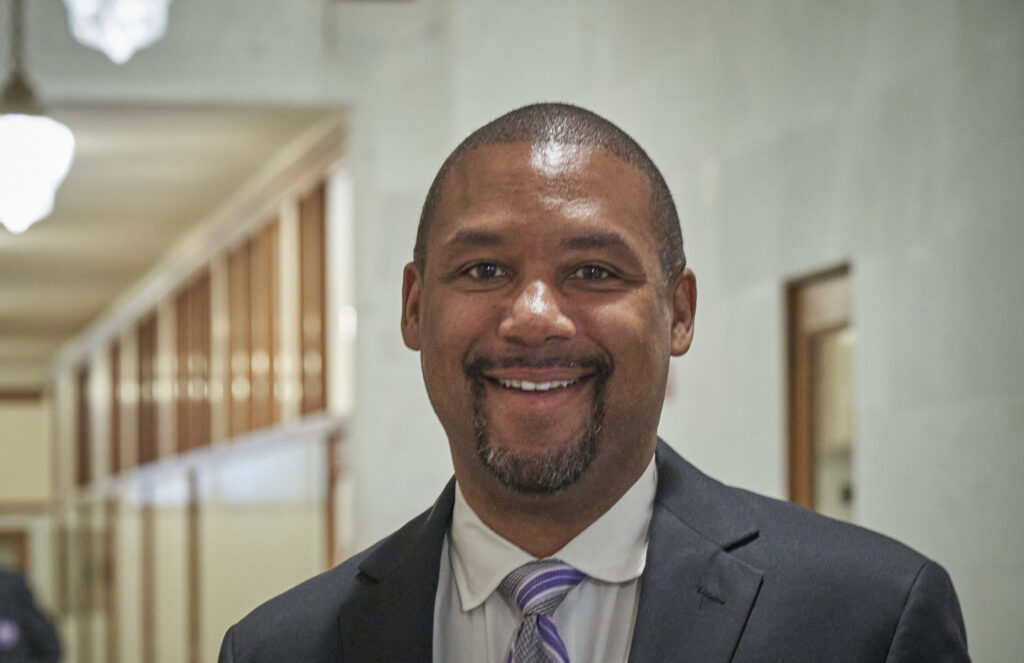The Board of Supes held a hearing on the final report of the African American Reparations Advisory Committee, and already the media coverage continues in its past pattern: It’s somewhere between missing the point, avoiding the context, and sometimes astonishing racism.

The Associated Press, which prides itself on political objectivity, went out of its way to quote a Republican leader in a city where nobody pays much attention to Republicans, who have little or no political relevance:
Critics say the city’s reparations plans are unconstitutional and would ruin the city financially. Richie Greenberg, who ran for mayor in June 2018 and received less than 3% of the vote, said in an email to the board that the reparations plan “is unlawful, and pursuing the plan regardless of this fact is a clear and purposeful wasting of the city’s taxpayers’ money.”
The guy got three percent of the vote, and now AP quotes him as if that creates “balanced” reporting.
I was surprised that Justin Phillips, who has done a generally excellent job reporting on reparations, gave Greenberg as much attention as he did in his column this morning.
NBC Bay Area reported that “Cash reparations draw controversy in San Francisco,” when the only real “controversy” is what the news media has stirred up. The hearing was moving and powerful, and all 11 members of the board, including its most conservative members, praised the committee, accepted the report, and said they wanted to see ways to implement more than 150 recommendations, only a small number of which involve cash payments.
The “controversy” NBC mentioned involved a statewide poll, not a San Francisco poll, which addressed only the issue of cash payments.
It reminds me of the days when news outlets decided it was important to quote climate-change deniers so they could claim they were “balanced.
You can read the full report here.
Help us save local journalism!
Every tax-deductible donation helps us grow to cover the issues that mean the most to our community. Become a 48 Hills Hero and support the only daily progressive news source in the Bay Area.
It seems pretty clear that a lot or reporters didn’t bother to do that.
The idea that reparations are some sort of handout (check out the Fox News story that uses the word “dole,” which refers to post-War Britain’s welfare system) is fundamentally wrong.
Reparations are designed to repair the damage that the US—and the state of California, and the City and County of San Francisco—has done to Black people. Like tort law in the US, the idea is not to give people something free but to make them whole.
The press loves the $5 million figure, which sounds like such a big number. But let’s put it in context.
A Black property owner who, say, had three or four parcels in the Fillmore in the 1950s, maybe an apartment building, a family home, a commercial building, and lost all of them to redevelopment (and got paid a fraction of their value) lost more than that property. They lost the ability to build generational wealth. Those parcels today would be worth tens of millions of dollars, which the owner’s descendants could have used to start businesses, educate their kids, buy their own homes … you get the point.
How much would it cost to fix that historic injustice? Just a tiny fraction of the $47 trillion that the rich have stolen from the poor in this country in the past 40 years—and the vast, vast majority of those beneficiaries have been white.
It’s an even smaller fraction of the wealth generated from the exploitation of Black people since 1619.
So it’s really a pretty small number. (Giving $5 million to every Black person in San Francisco would amount to less than one half of one percent of the wealth of the 700 richest people in the United States. There are 84 billionaires in San Francisco alone; do the math.)
But none of that context is in any of the news stories I’ve seen. It’s a disgrace that in 2023 we are still having this argument.
Walton told me:
It’s unfortunate that rather than see the proven harm done to Black people in San Francisco and the opportunities to address he inequities caused by slavery and further exacerbated by racists and elitist policies, certain media outlets focus on continuing the division that slavery and the Jim Crow south created.
Oh, and if the AP is right, Mayor London Breed says that reparations “are best addressed on the national level.” I’m not even sure what to say.




